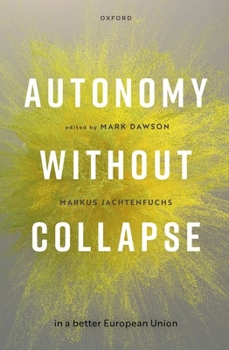Autonomy Without Collapse in a Better European Union
The European Union's history exhibits numerous episodes in which Member States have sought to re-enforce their national autonomy in the face of deepening integration. Efforts to re-gain autonomy, however, are often accompanied by legitimate concerns that autonomy will lead to dis-integration or will have wider destructive consequences. The EU thus faces a dilemma. Calls for autonomy cannot all be dismissed as mere populist rhetoric or national egoism but instead represent a legitimate questioning of the degree of uniformity that EU law and politics presently carry. At the same time, the fear that greater autonomy may carry dis-integrative effects is also legitimate -uniformity is not an accidental by-product of the EU's construction but intrinsically related to its policy goals. Giving too much room for autonomy might create an opportunity structure for the loss of collective goods, deficits in problem-solving, and perhaps even to self-destruction. The EU requires autonomy, but in doing so, it must also avoid collapse. Can it achieve it, and if so, how? Autonomy without Collapse is devoted to exploring innovative answers to this question. It draws together scholars in law and political science interested in exploring how to overcome the central dilemma of preserving sustainable yet real autonomy in the future European Union.
Format:Hardcover
Language:English
ISBN:0192897543
ISBN13:9780192897541
Release Date:December 2022
Publisher:Oxford University Press
Length:208 Pages
Weight:1.05 lbs.
Dimensions:1.3" x 6.3" x 8.9"
Customer Reviews
0 rating





